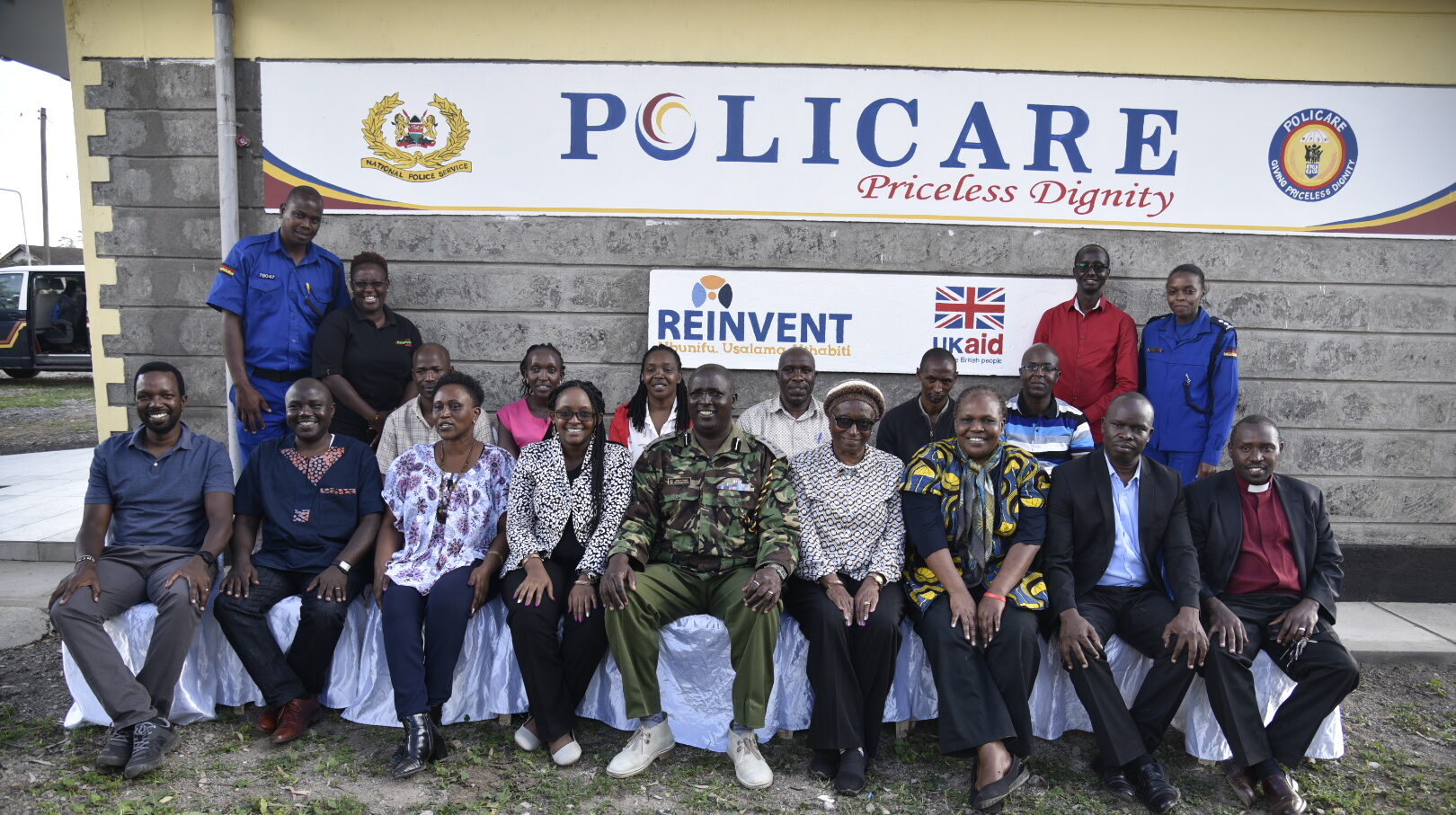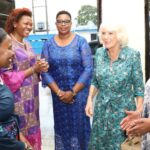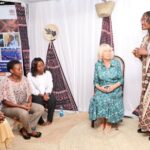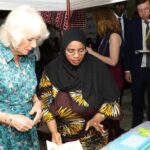
Violence against women and girls remains one of the most prevalent and pervasive human rights violations in the world. Globally, an estimated 736 million women — almost one in three — have been subjected to physical and/or sexual intimate partner violence, non-partner sexual violence, or both, at least once in their life.
Each year on the International Day for the Elimination of Violence Against Women & Girls on November 25 and during the ensuing 16 Days of Activism against gender-based violence, we consider the work that our programmes are doing to prevent violence against women & girls. On the FCDO-funded REINVENT programme in Kenya and the evaluation of the FCDO’s Stopping Abuse and Female Exploitation (SAFE) programme in Zimbabwe, we are working with communities to build reporting systems, to embed knowledge and networks for survivors and to shift people’s mindsets to unite against violence against women and girls.
Violence against women and girls (VAWG) is one of the key pillars of the Reducing Insecurity and Violent Extremism in Northern and Coastal Regions of Kenya programme (REINVENT), which also seeks to address election-related violence, inter-communal conflict, weak community-police relations and violent extremism.
Developing entry points and expertise to improve access to justice
We have worked with survivors of sexual and gender-based violence (SGBV) on access to justice initiatives and referral pathways to mainstream survivor-led approaches to accessing justice. This work has closely involved County governments, the National Police Service (NPS), courts and other stakeholders that are crucial to embedding these approaches in civic organisations.
- At community level, we have engaged with survivors networks and gender justice champions by carrying out trainings sessions for the leaders of community organisations on how to influence and advocate for gender justice.
- At county level, the REINVENT team has convened key experts and leaders in the project’s workstreams – not just VAWG, but election and intercommunal violence and violent extremism – to enhance the accountability of the people and organisations responsible for services within the counties.
- And at regional and national levels, we have worked with regional blocs – the Lake Region Economic Bloc (LREB) and Northern Region Economic Bloc (NOREB) – and the NPS to integrate gender mainstreaming.
Using technology and capturing data for evidence-based policies
REINVENT has been helping women, girls and institutions in Kenya to advance gender equality by supporting digital innovation and technology projects aimed at improving GBV data collection and analysis.
In collaboration with the National Gender Equality Commission (NGEC), REINVENT has been supporting the creation of a consolidated government-managed database for GBV incident data – the Sexual and Gender based Violence Information System (SGBVIS) – which will provide improved access to up-to-date information for both state and civil society actors. This increased understanding of the challenges will contribute to a more appropriate and targeted response and enable evidence-based policy making.
These efforts to improve data collection are also reflected in the technical assistance REINVENT provided to advance an app-based tracking and reporting system for cases of SGBV. The project strengthened the capacity of officers at the State Department for Gender to work with the ICT Ministry for Sustainability to integrate an active call center in the Khomesha Dhuluma app. The app now records SGBV data beyond specific requests to include various services on the referral chain, such as psycho-social help, counselling, health care, police services and safe-house placement.
Queen Camilla visited the REINVENT-managed Sexual and Gender Based Violence (SGBV) Situation Room in Mombasa in November 2023.
Pioneering holistic, survivor-centred services across the country
REINVENT has been supporting the Kenyan government, institutions including the National Police Service (NPS), and non-state organisations to invest in and pioneer innovative approaches such as POLICARE, which is revolutionising NPS’s sexual and gender-based violence (SGBV) response.
POLICARE recognises that prevention and response services are often provided in a disjointed manner by state and non-state actors. To address that, POLICARE provides a holistic, multi-sectoral, survivor-centered one-stop service to survivors of violence.
The centre offers an array of services, including health, legal, justice, counselling, and psychosocial support under one roof. It aims to reduce secondary trauma among SGBV survivors and minimise the time taken to finalise cases, offering a viable framework for addressing SGBV cases on a broader scale.
REINVENT pioneered POLICARE in Nairobi, and on its success, scaled it to Nanyuki, in the Rift Valley region, which has reportedly high levels of SGBV, including Female Genital Mutilation (FGM), child marriages, and physical and emotional violence.
Alongside supporting effective SGBV responses, the programme has embedded aspects of gender-responsive elections in all the trainings and provided technical support towards mainstreaming gender sensitivity components in the NPS Service Standing Orders (SSOs), while at the same time securing the sustainability of investments made so far through innovations such as the POLICARE Centre.
“Our goal in supporting the POLICARE initiative is to enable the National Police Service (NPS) and other relevant actors to implement minimum standards for prevention and response to sexual violence, recognising that justice is a form of care. It is paramount that a survivor is not re-victimised as they go through the process of seeking for justice and that the services they receive along the criminal justice referral chain restore dignity. This way, survivors can heal faster and once again be able to play their role in the ‘development journey’.
Our approaches to development have to be survivor-centered because that is the only way we can offer relevant, comprehensive services in an efficient and effective manner, ensuring we get long-lasting results.”


